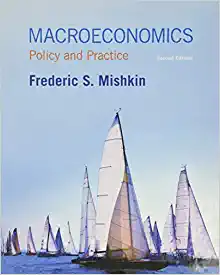Question
Caustic soda Suppose that demand for caustic soda in Freedonia is given by D ( P ) = 10000 - 2 P , where the
Caustic soda
Suppose that demand for caustic soda in Freedonia is given by D(P) = 10000 - 2P, where the quantity demanded is measured in units per year and the price P is in $ per unit. The market for caustic soda in Freedonia is perfectly competitive and consists of many price-taking firms each operating an identical plant.
Caustic soda production requires chlorine which all plants must buy from a monopolist named Freedonia Chlorine Corporation (FCC). FCC can produce chlorine at zero marginal cost and has no fixed costs.
Producing one unit of caustic soda requires one unit of chlorine and FCC charges a price of PC per unit of chlorine. Caustic soda plants have constant marginal cost which is MC = $(PC + 1000). (For example, if PC = $200 then each plant has MC = $1200.) Suppose caustic soda firms have no fixed costs and there are no capacity constraints in the market.
a. If price of chlorine is PC, the (short-run) price in the Freedonian caustic soda market is aPC + b where a and b are positive numbers. Give the values for a and b. b. Suppose FCC sells chlorine only to the Freedonian caustic soda firms and its goal is to set the profit maximizing price. What is the profit maximizing price FCC charges for chlorine?
c. What are the equilibrium price in the Freedonian caustic soda market? d. What are the quantity in the Freedonian caustic soda market?
c. What is the consumer surplus in the caustic soda market?
Step by Step Solution
There are 3 Steps involved in it
Step: 1

Get Instant Access to Expert-Tailored Solutions
See step-by-step solutions with expert insights and AI powered tools for academic success
Step: 2

Step: 3

Ace Your Homework with AI
Get the answers you need in no time with our AI-driven, step-by-step assistance
Get Started


